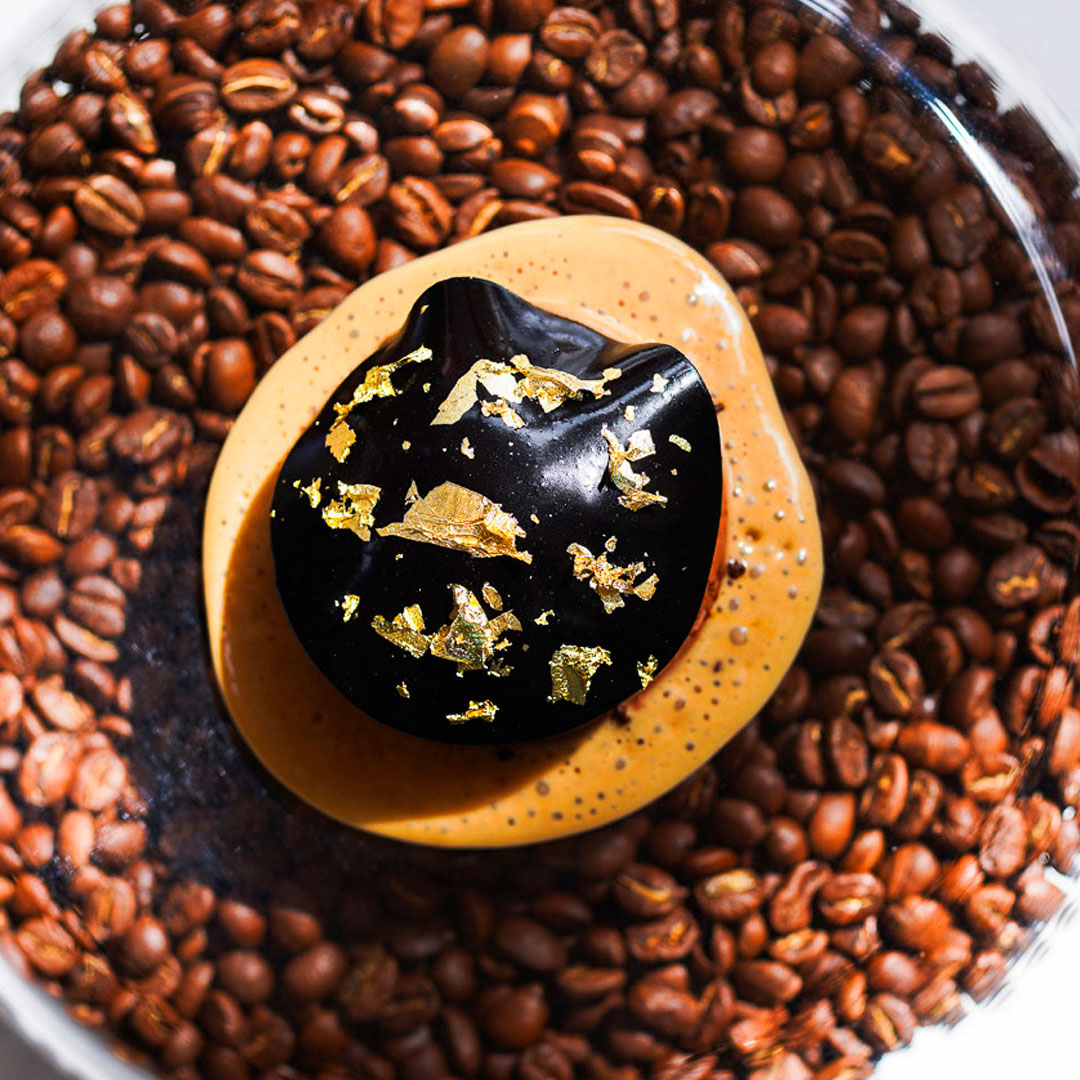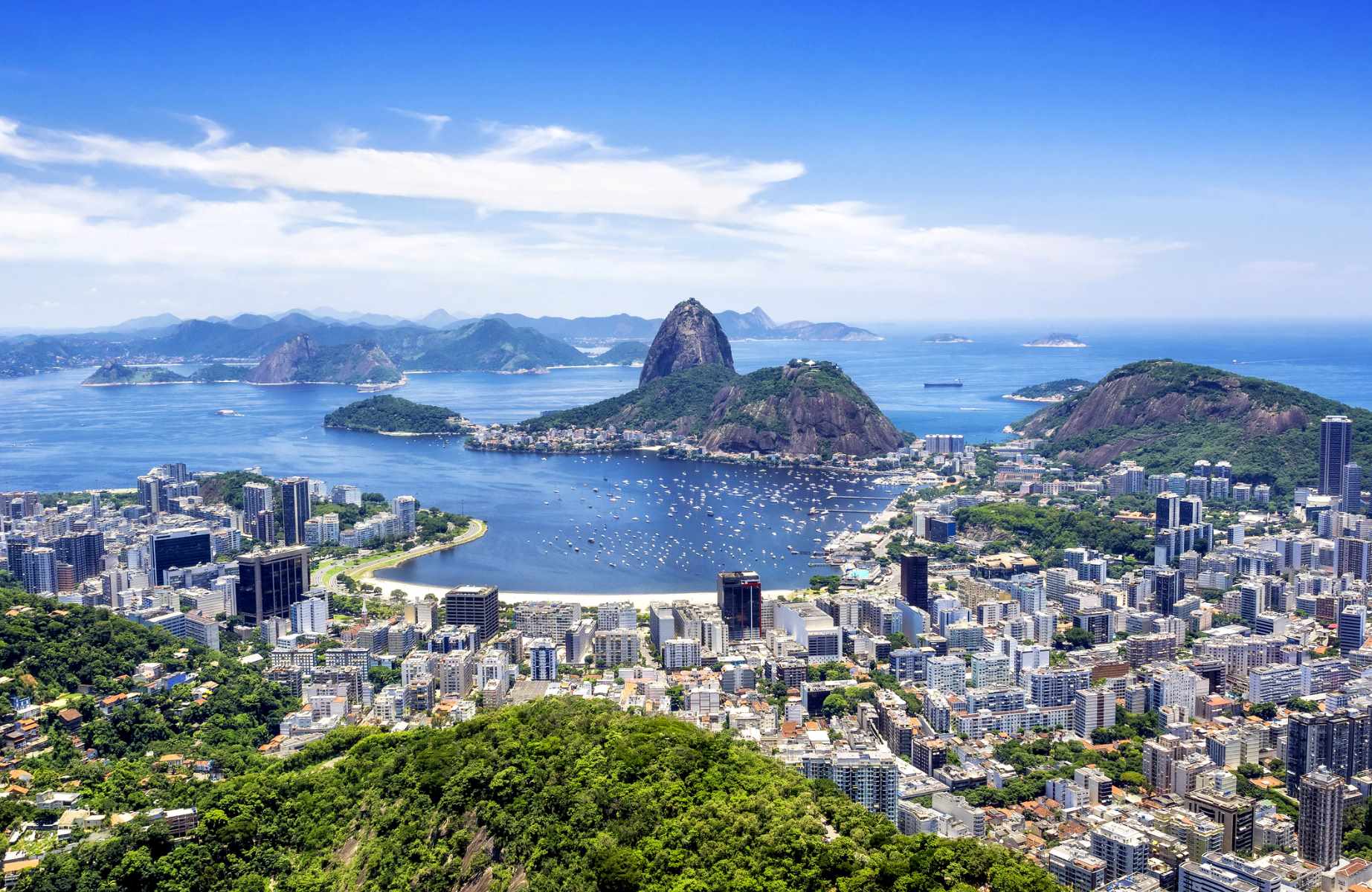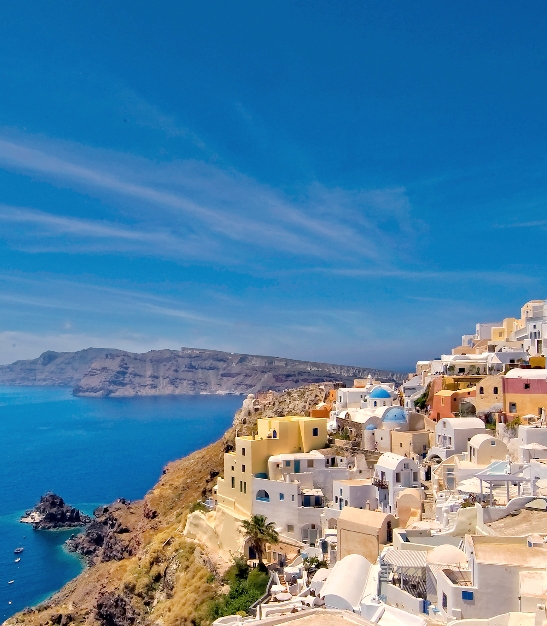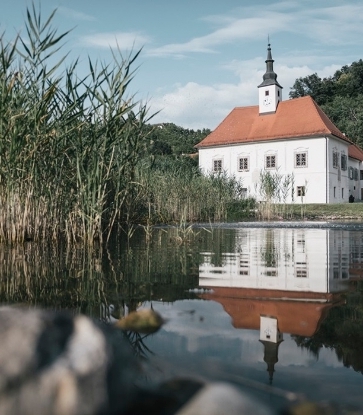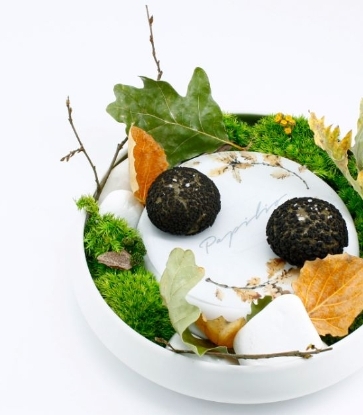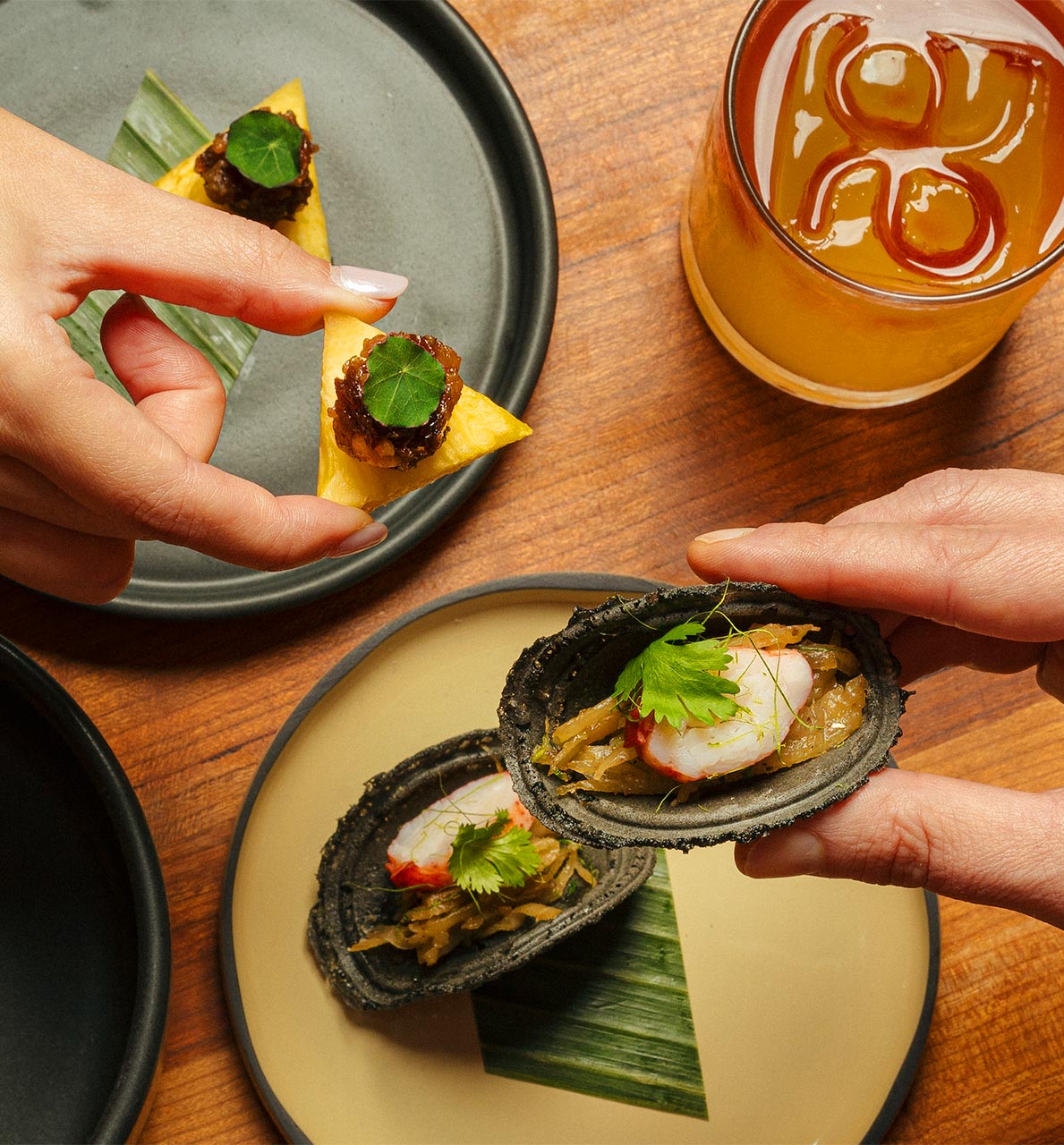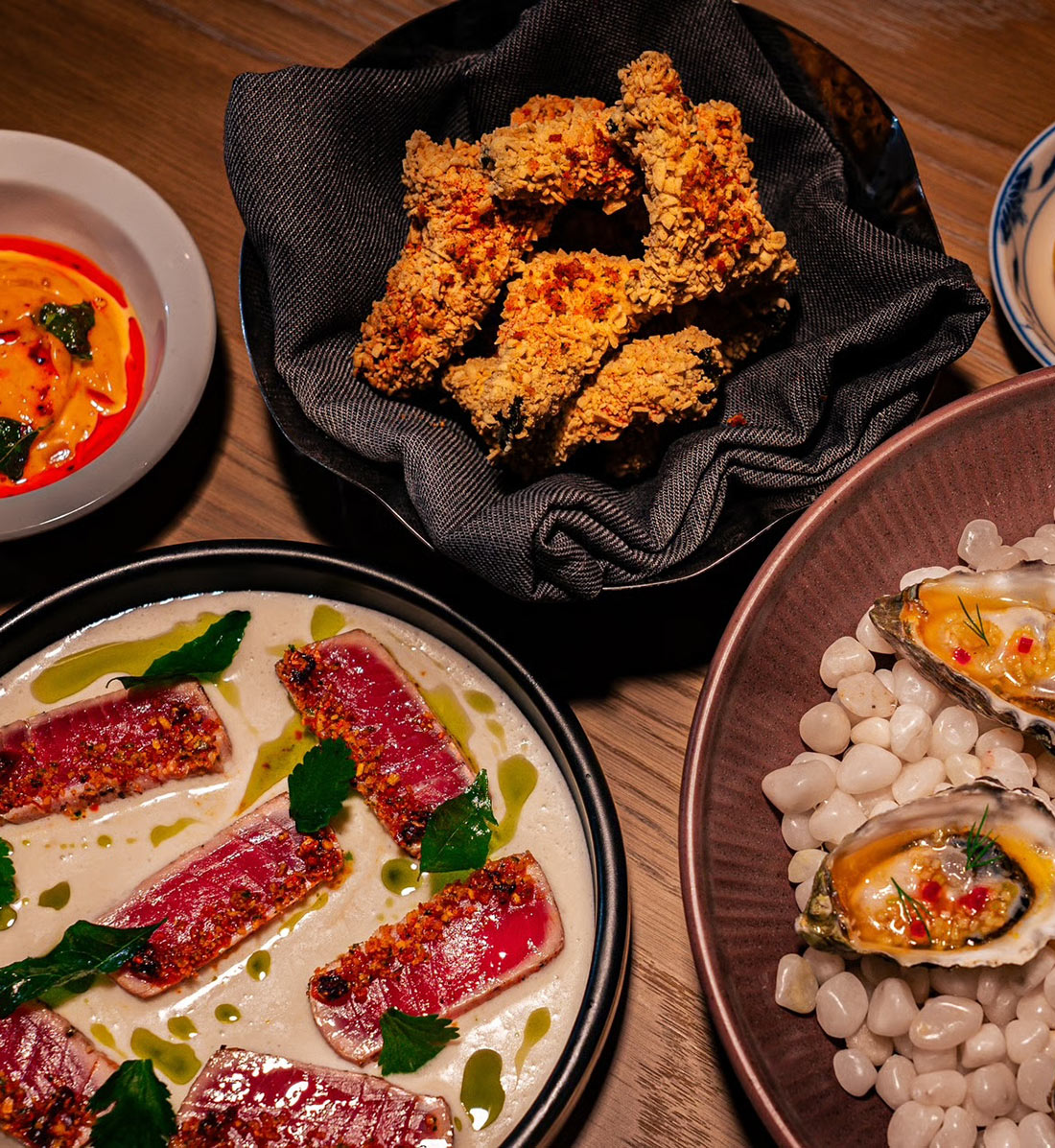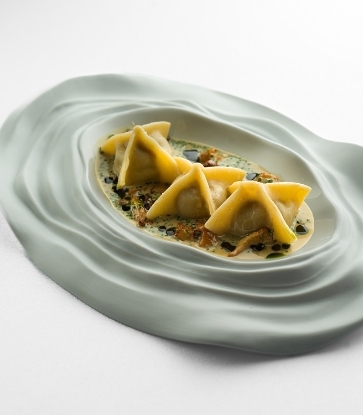Set in the northeast of the country, about 90 minutes’ drive from Budapest, Graefl Major Kétútköz is a truly special place. The mansion house was discovered by Györgyi Szerencsés 10 years ago, in a truly dilapidated state, and she immediately set about restoring it – and she is now the proud owner of the only art nouveau castle still in existence in the whole of Hungary.
Following the restoration, she turned her focus to the extensive 25-acre grounds, where she began to implement her organic farming plan. From the herbs and vegetables in the biogarden to the chickens in the coops and the cattle in the fields, her zero-waste, zero-kilometre dream has slowly flourished, helped along by a like-minded team – and today the restaurant is proud to be part of the MICHELIN Green Star Community thanks to its admirable eco-credentials.
Join us as we go behind the scenes to discover this truly magical place.

From the outset, Györgyi's outlook was admirable, as she considered it her responsibility to preserve both this cultural heritage site and the surrounding land for future generations to enjoy – and in that she has already succeeded. With the opening of the restaurant, her other goal was to create strong links between nature/farming and the hospitality industry in the minds of her guests, by educating them around two things: how to live a healthier lifestyle – both for the benefit of their bodies and the condition of the land – and how to focus more on future-orientated thinking than just the here and now.
The team’s first job was to clean the soil and restore its nutrients, before introducing a range of organic seeds. One of their biggest challenges from the outset was – and still is – getting guests to understand the amount of work that is behind the ingredients that appear on their plates; the planning, the planting and the rearing of livestock can take not just months but years to yield results.
Having a team that fully buys into the dream of being a zero-waste, zero-kilometre biogarden, farm and kitchen is essential in Györgyi's mission. They don’t consider anything to be waste here, but see every item as a valuable material. Food scraps are given to the animals, who in turn produce manure for the garden to help the plants grow, and this closed-loop cycle provides the perfect solution to take care of the soil. The team try to plan a year in advance, discussing with the chef the potential new culinary trends, taking into account new varietals and always considering what can be preserved for another season. This is no single-handed mission, it's all about teamwork and collective forethought, from those who plant the seeds and take care of the plants to the chef himself.

It might seem simple from the outside, but executing this organic and ecologically minded plan is no mean feat. With different plants flowering and fruiting at various times of year, from June onwards, the team are already thinking about their winter guests by pickling vegetables and drying, freezing and crumbling herbs. Then there's the weather conditions to take into account, which can have a big impact on successes and yields, meaning that there's often the need to adapt and improvise throughout the year to make the plan work.
Every ingredient that features on guests' plates is the result of this annual plan, with the menu written by the garden and the kitchen operating on a day by day basis. Györgyi describes the team as "thinking like their grandparents did", working in the here and now, using only ingredients that are available at a particular moment in time.
It is therefore of the essence that the team take care of the natural balance and organic processes around them, from maintaining the health of the soil to encouraging biodiversity. It's also why they are so involved in crop farming and animal husbandry. Echoing their ancestors, they keep their livestock in a traditional way in the form of pasture and grazing, and the happiness of their animals is a key consideration for them.

The chef here, Ádám Gyűjtő, is an advocate of Hungarian bistro cooking, but you'll also find touches of French, Spanish and even Vietnamese cuisine in his constantly evolving dishes, which can change from day to day and even throughout services according to the availability of the freshest farm produce. This is a chef who likes to cook what makes him happy, and the produce, the weather and the people around him all give him inspiration when he's creating new dishes. Using ingredients nurtured from scratch on the land around him also brings him plenty of satisfaction. He enjoys making bread from the estate's own milled wheat, as well as using the milk from their cows to produce cheeses and other dairy products.

Speaking on the future of a more mindful approach to gastronomy, Ádám comments:
"I think there is a future. We need to be more in tune with nature, with the world around us."
Györgyi follows up:
"There are two options: people either consume unhealthy, chemical-saturated food or they think about their health and future, and visit more mindful gastronomic venues."

All photos courtesy of Graefl Major Kétútköz.








